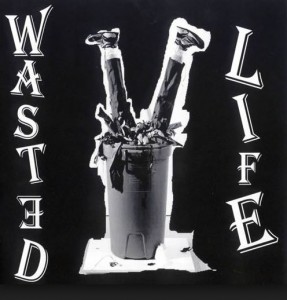Sin is expensive. Not only does it leave nothing of value behind, it prevents you from investing those resources; financial, physical, emotional and intellectual, in any pursuit of something that reaps a positive reward. There are individuals in the family tree that build wealth  and reputation for generations that follow. Then there are individuals in the family tree that squander the resources from the past and destroy the heritage for those of the future. This is the very indictment that Jeremiah explains when he describes the cry of the Israelites. Jeremiah 3:24 says, “But from our youth the shameful thing has devoured all for which our fathers labored, their flocks and their herds, their sons and their daughters.”
and reputation for generations that follow. Then there are individuals in the family tree that squander the resources from the past and destroy the heritage for those of the future. This is the very indictment that Jeremiah explains when he describes the cry of the Israelites. Jeremiah 3:24 says, “But from our youth the shameful thing has devoured all for which our fathers labored, their flocks and their herds, their sons and their daughters.”
Ryken explains this situation well. He writes, “Next God’s people confess how costly their sin has been. False gods are harsh taskmasters. They always damage the people who worship them. In this case they have consumed the ‘flocks and herds’ of Israel (Jeremiah 3:24). Worse still, they have even consumed ‘their sons and daughters.’ This is not pleasant to talk about, but the evidence is mounting that God’s people were guilty of child sacrifice. Some of the gods they worshiped demanded the lives of their children, and they were willing to offer them.”[1] Later in Jeremiah chapter 7, we’ll read about the “valley of slaughter” where the future was destroyed as the children were sacrificed for the pleasurable pursuits of the present.
Another commentator says, “Sin would be their bed, humiliation their blanket, but they could not claim that someone else had done this to them. They had made their own bed and must lie in it. The only possibility of a new life lay in recognition of sin, and the words of confession, here stated, opened the door of exit from the bedroom of shame.”[2] MacArthur writes, “We live in an era of immediate gratification. No generation prior to this has ever had access to so many means of fulfilling fleshly desires in a here-and-now fashion. For example, we have credit cards that allow us to own what we can’t afford, go where we wouldn’t be able to go, and do what would otherwise be impossible for us to do. Only later do we have to begin paying. The prevalence of uncontrolled credit-card debt is symptomatic of an attitude that says, “I want what I want when I want it!” The mindset of our age is against postponed pleasures of any kind. We prefer instant gratification, and we all too willingly sacrifice the future on the altar of the immediate.”[3]
[1] Philip Graham Ryken, Jeremiah and Lamentations: From Sorrow to Hope, Preaching the Word (Wheaton, IL: Crossway Books, 2001), 69.
[2] Peter C. Craigie, Jeremiah 1–25, vol. 26, Word Biblical Commentary (Dallas, TX: Word, Incorporated, 1998), 65–66.
[3] John MacArthur, The Glory of Heaven: The Truth about Heaven, Angels, and Eternal Life (Wheaton, IL: Crossway Books, 1996), 46.